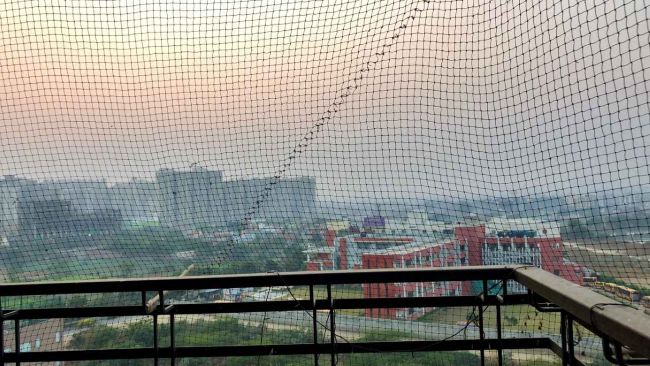Why Anti-Bird Netting Is a Must-Have for Your Property: Protection, Cleanliness & More

Birds might seem harmless, but when they take over your property, they can become a real nuisance. From damaging buildings to creating unsanitary conditions, their presence can lead to costly repairs and constant cleaning. If you’re struggling with birds nesting in unwanted places, anti-bird netting could be the perfect solution.
Not only is it a humane way to keep birds away, but it also offers long-term protection without harming wildlife. Let’s explore the problems birds can cause, why anti-bird netting is so effective, and why professional installation ensures the best results.
The Problems Birds Cause on Properties
Structural Damage
Birds love to nest in sheltered spots like rooftops, gutters, and air vents. Over time, their nests can block drainage systems, leading to leaks, damp issues, and even structural weakening. Pigeons, in particular, can be a nightmare as their acidic droppings corrode metal, stone, and paintwork. Thankfully, there are bird deterrent solutions for your home available.
Health Hazards
Bird droppings aren’t just unsightly – they’re a breeding ground for bacteria and fungi. Diseases such as histoplasmosis and salmonella can be transmitted through dried droppings, posing a risk to residents, employees, and customers.
Aesthetic Issues
If you’ve ever seen a building covered in bird droppings, you know how quickly it can ruin its appearance. This is especially problematic for businesses where cleanliness is crucial. The last thing you want is for customers to be greeted by a mess on your storefront or outdoor seating area.
Business Disruptions
Restaurants, cafes, and retail spaces are particularly vulnerable to bird infestations. Birds scavenging for food can become aggressive, and their presence can deter customers. Even warehouses and industrial sites face issues, as bird droppings can damage stock and equipment.
How Anti-Bird Netting Solves These Problems
Prevents Nesting & Roosting
Bird netting acts as a physical barrier, preventing birds from accessing areas where they might nest or roost. This is particularly effective for rooftops, balconies, and warehouses.
Reduces Health Risks
By keeping birds away, you’re also reducing exposure to their droppings and the diseases they carry. This makes it a great option for businesses that need to comply with health and safety regulations.
Keeps Areas Clean
With no birds around, you won’t have to constantly clean up droppings, feathers, or nesting materials. This saves time and money while maintaining the look of your property.
Protects Crops & Gardens
For farmers and gardeners, bird netting is an essential tool to prevent birds from eating crops, damaging plants, or pulling up seedlings. It’s a simple yet highly effective way to safeguard your harvest.
Where to Use Anti-Bird Netting
Anti-bird netting is incredibly versatile and can be installed in various settings, including:
- Residential Properties – Ideal for keeping birds off balconies, rooftops, and garden spaces.
- Commercial Buildings – Perfect for warehouses, shopping centres, and office buildings.
- Agricultural Areas – Commonly used to protect crops, orchards, and greenhouses.
- Public Spaces – Helps keep train stations, stadiums, and bridges free from bird infestations.
Ensuring that Anti-Bird Netting Stays Safe
Anti-Bird netting can be the ultimate solution when you have a problem with birds on your property. It’s renowned for being a humane want to prevent nesting. However, there are a few things you need to do to make sure that anti-bird netting remains a safe and effective solution. Let’s take a look at what you need to do.
Choose a Mesh Size
Know that there are different mesh sizes when it comes to anti-bird netting. You need to ensure that you choose the right size to keep bird species away. If you choose a mesh that’s too big, it means that some birds will be able to get through, and they could get stuck behind it. Therefore, assess what type of birds you have hanging around your property, and you need to choose an appropriate mesh size.
Ensure It Is Secure
You also need to make sure that the netting remains taut. If it starts to sag and become loose, this isn’t going to create an effective barrier for your building. It can also lead to birds getting tangled in the loose netting. Therefore, ensure that netting is professionally installed from the beginning and that it’s taut.
Look for Damage
While there’s not a lot you have to do once anti-bird netting is installed, you still want to inspect it from time to time. This is particularly true after bad weather. You want to make sure that if there’s any damage, this is repaired quickly. Not only will this make sure this solution works, but it will make sure no birds can become trapped.
Conclusion
Anti-bird netting is a simple yet highly effective way to keep your property clean, safe, and free from bird-related damage. Whether you’re dealing with nesting pigeons, aggressive seagulls, or crop-eating birds, netting provides a humane and long-lasting solution.
For the best results, professional installation is highly recommended. It ensures the netting is properly secured, legally compliant, and tailored to your specific needs.
If you’re ready to protect your property, consider reaching out to an expert in anti-bird netting installation today!


